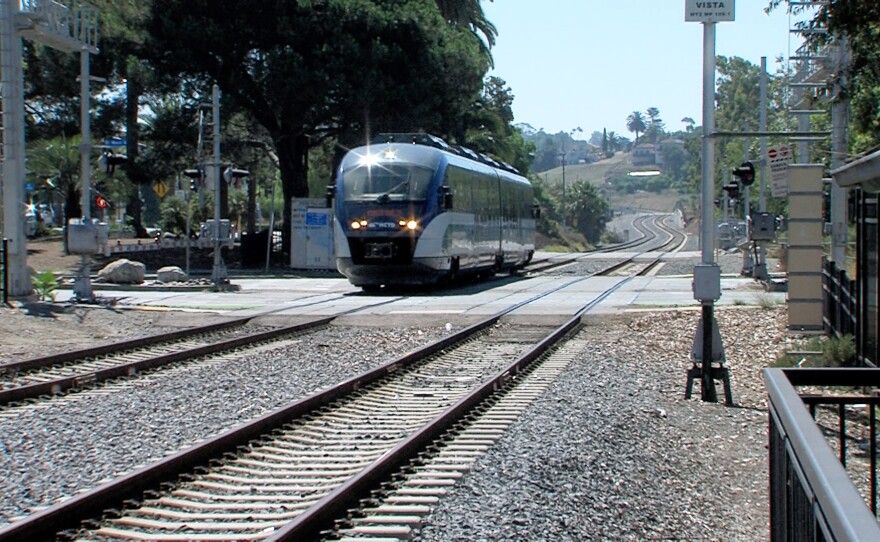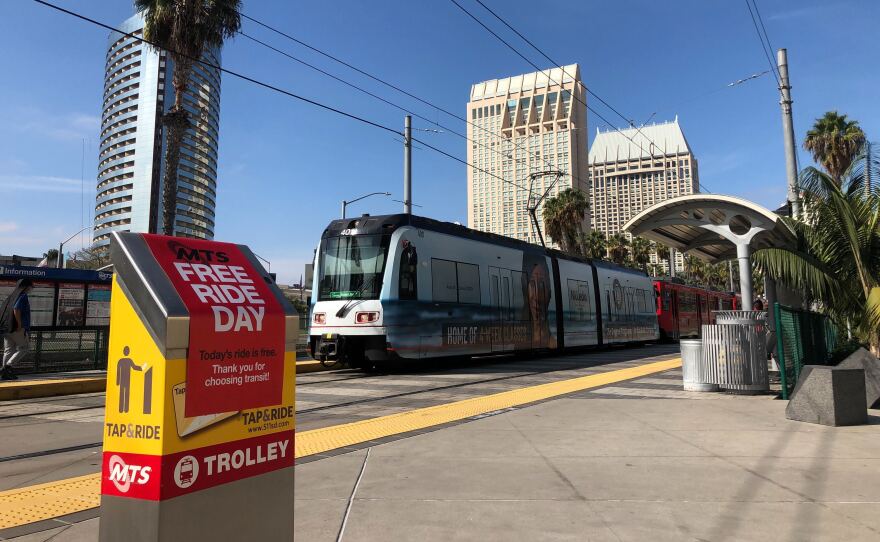California Senate Bill 79 would make it easier to build more housing around public transit. The bill would have a big impact on San Diego, and it’s dividing local leaders.
It would overrule local zoning laws within a half-mile of quality public transportation stops and allow multifamily construction, like apartments and condos, at and around the stations.
Last month, KPBS reported San Diego-area state senators were split on this bill. Two of them voted for it and two voted against, and the division wasn’t along partisan lines.
The bill passed the state Senate, with the support of Democrats Steve Padilla and Akilah Weber Pierson. Republican Brian Jones and Democrat Catherine Blakespear voted against it.
Now, the bill is working through the state Assembly. It passed the Assembly housing committee 9-2 and has been referred to the Committee on Local Government. If it passes there, it will likely move to the Assembly floor.
But in the meantime, other San Diego politicians are weighing in on the bill and its potential impact on San Diego County.
“Federal taxpayers and state taxpayers pay a lot of money for these transit projects. It’s really important that we get riders on them,” said U.S. Rep. Scott Peters, D-San Diego.
He said taxpayers who fund transit projects, like the ongoing efforts to address erosion on the LOSSAN rail corridor between San Diego and Los Angeles, have a right to ask for land use around the stations that complements that investment.
“A small community like Solana Beach, for instance, got a huge train station, and we would like to see people riding that train,” Peters said. “It’s reasonable to have Solana Beach upzone in the areas just around that train station that we all paid for to make sure people are on the train and off the road.”
But San Diego County Supervisor Jim Desmond, a Republican, called the bill “An Attack on the American dream” in an op-ed for the Vista Press.

Desmond’s District 5 covers mostly rural and low-density places in North County, along with Oceanside, Vista and Escondido.
Those cities have several transit stops that would qualify for more housing under SB 79. Those include the North County Transit District (NCTD) Sprinter and Coaster stations, and the Oceanside Transit Center.
Desmond did not respond to multiple requests for comment.
Back in 2018, as a candidate for the seat he currently holds, Desmond told the Union-Tribune that “the first approach toward additional housing is to encourage infill housing projects near transit and transportational opportunities.”
But in his recent op-ed, he wrote, “If this bill passes, developers could knock down homes on quiet streets and build multi-story apartment buildings with zero community input. Local governments would be stripped of the ability to object.”
He wrote Sacramento is pushing mandates that ignore local voices, and SB 79 would turn every neighborhood in California into a political experiment.
But to Peters, it makes sense that new housing would be located near transit stops.
“We want to make sure that we get cars off the road, from an environmental and traffic perspective,” Peters said. “We want to make sure we get farebox recovery. We want people paying in so we can recover the costs … to the greatest extent possible. And we want it to be safer, which they are when there’s more people on them.”
This isn’t the first housing bill to divide California politicians. But this stark divide is one of the central issues in California politics today.
“Part of the American dream is that our kids will do better than we will,” Peters said. “The American dream is opportunity. It’s not just opportunity for people my age, it’s opportunity for people in their 20s and 30s too.”





